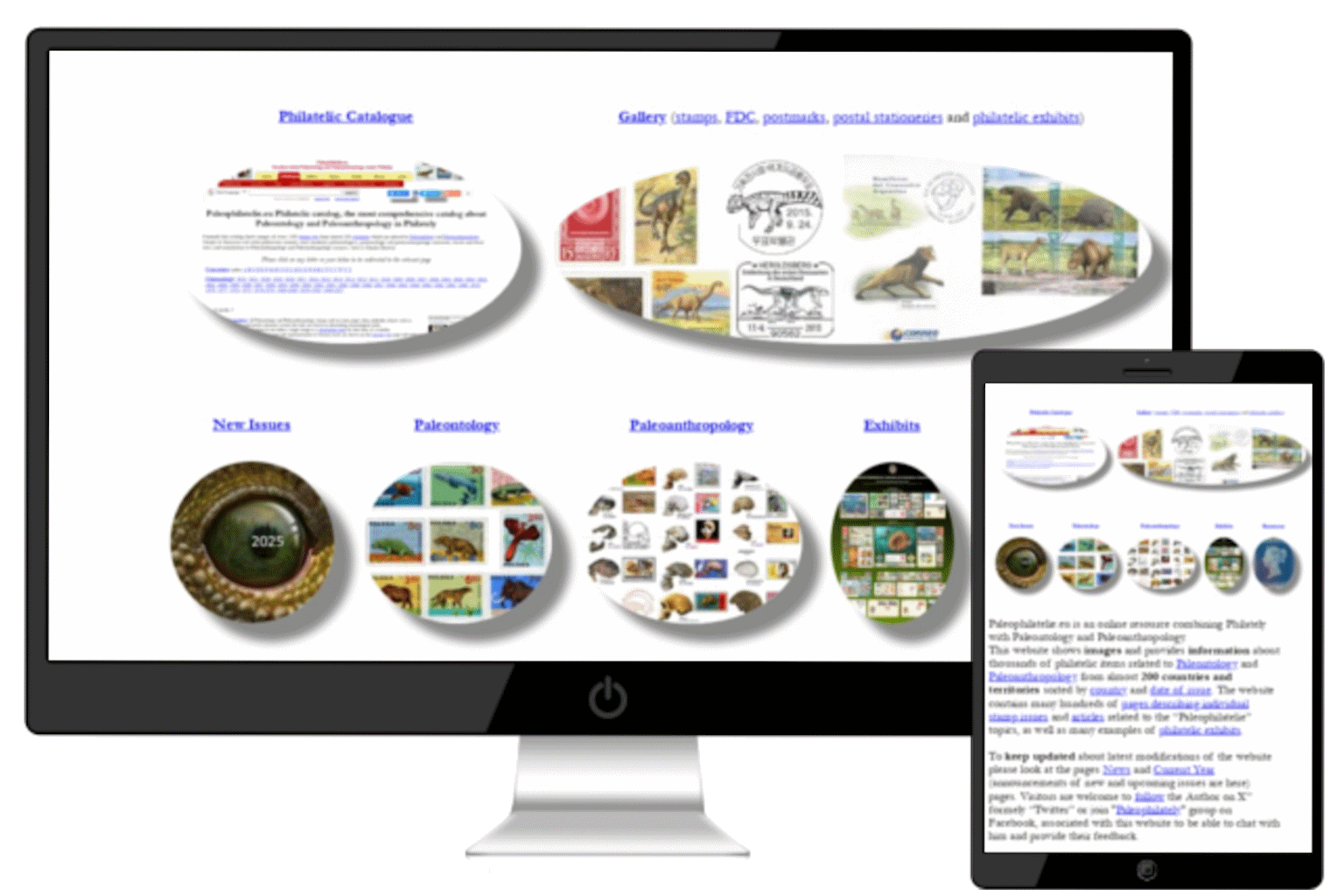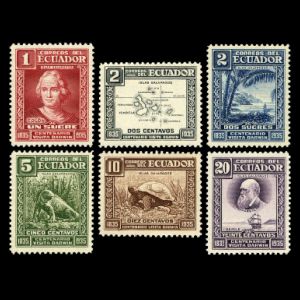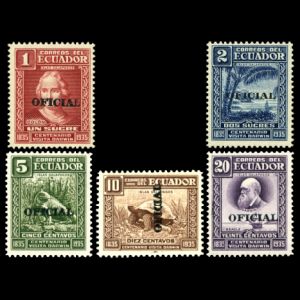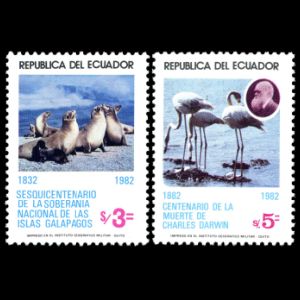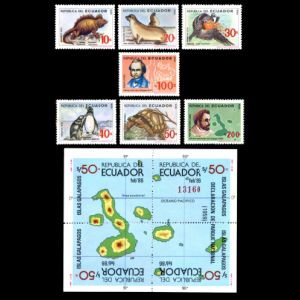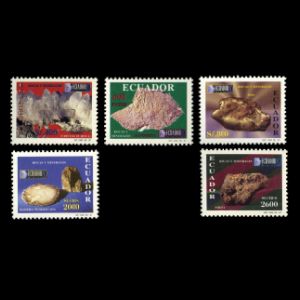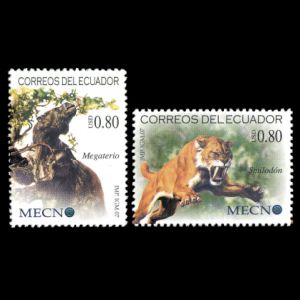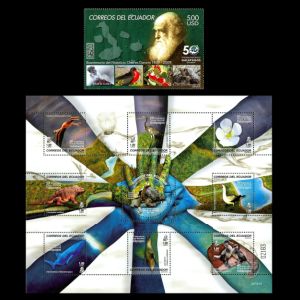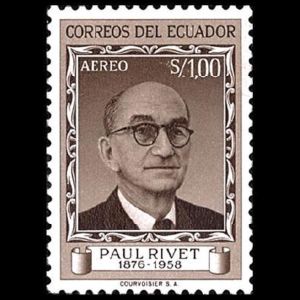Ecuador
Prehistoric animals, fossils, petrified wood, Charles Darwin, anthropologist Paul Rivet on stamps of Ecuador
Contents:
Ecuador, officially the Republic of Ecuador, is a representative democratic
republic in northwestern South America, bordered by
Colombia
on the north,
Peru on the east and south, and the Pacific Ocean to the west.
Ecuador also includes the Galápagos Islands in the Pacific, about 1,000 kilometers west of the mainland.
The islands are famed for their vast number of endemic species and were studied by
Charles Darwin during the voyage of the Beagle.
His observations and collections contributed to
the inception of Darwin's theory of evolution by natural selection.
What is now Ecuador was home to a variety of Amerindian groups that
were gradually incorporated into the Inca Empire during the 15th century.
The territory was colonized by
Spain during the 16th century,
achieving independence in 1820 as part of Gran Colombia, from which it
emerged as its own sovereign state in 1830.
The first stamps of Ecuador were issued on 1 January 1865.
The first Paleontology related stamps of Ecuador issued in 1936 - the set
"100 years since Darwin's visit on Galapagos".
Since then, several more stamps of Darwin and prehistoric animals and plants issued
in the country.
[R2]
Official stamps of Ecuador related to Paleontology and Paleoanthropology:
fossils, prehistoric animals, Charles Darwin, anthropologist.
Notes:
[1] There are many stamps related to Galapagos islands issued in Ecuador, some of them show portraits of Charles Darwin,
who visited these islands in 1836.
The
stamp of Charles Darwin from 1936 is the first stamp related to Charles Darwin ever.
[2] Petrified wood is shown on a blue stamp with face value of 2000 Sucres.
Other stamps of Ecuador to consider: anthropologist.
Notes:
[O1]
Paul Rivet was a French anthropologist who lived and worked
in Ecuador for some period of time.
In 1937 he founded the Musée de l'Homme (anthropology museum) in Paris, which became renowned for
its ethnographic research and collections.
In 1942, Rivet went to Colombia, where he founded the Anthropological Institute and Museum.
[R3]
Commemorative postmarks of Ecuador related to Paleontology: prehistoric animals
Legend is here
| 17.09.1935 "Centenary of the Darwin voyage to the Galapagos Islads" [Sp] [PM1] |
10.05.2007 "Prehistoric animals" [FDC] |
|
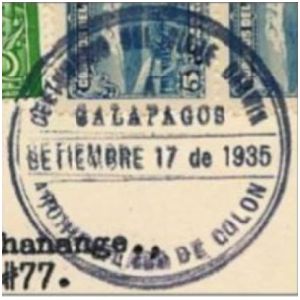 |
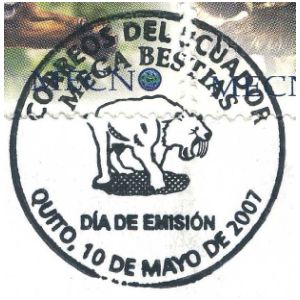 |
|
Notes:
[PM1] This rare postmark was issued to commemorate the Centenary of the Darwin voyage to the Galapagos Islads and was valid for 1 day only.
The text on the postmark is "Centenario del Viaje Darwin/ Galápagos/ Settembre 17 de 1935/ Archipiélago de Colón".
References:
Acknowledgements:
-
Many thanks to
Dr. Peter Voice from Department of Geological and Environmental Sciences, Western Michigan University,
for reviewing the draft page and his very valuable comments.
- Many thanks to fellow collector Peter Brandhuber from
Germany (who run Evolution of mankind and
Philately group on facebook ) for his help to find an information about rare postmark of Ecuador from 1935 -
"Centenary of the Darwin voyage to the Galapagos Islads".
